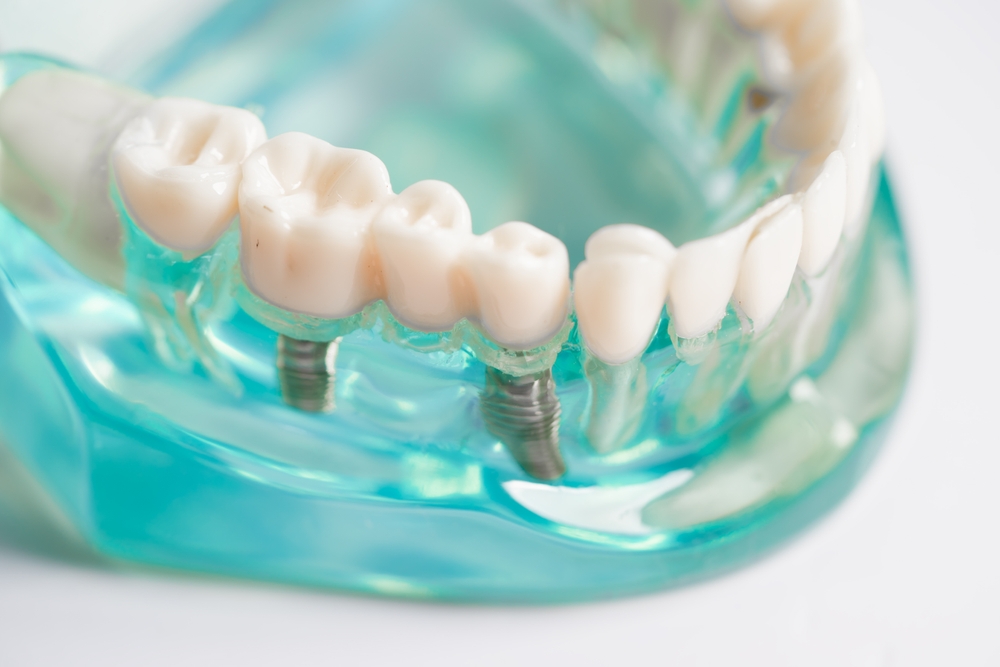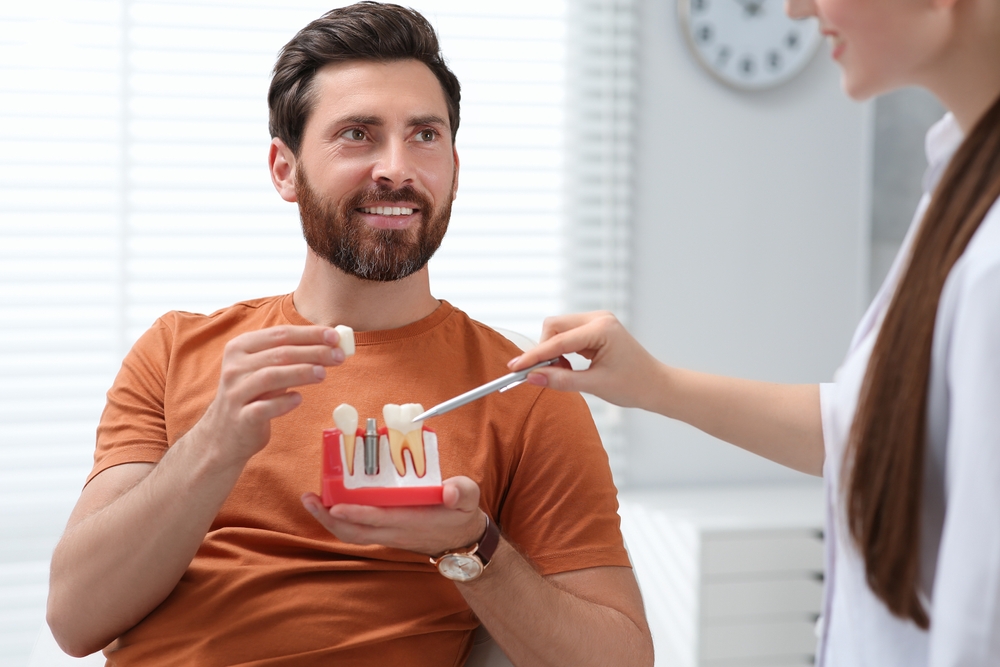
Dental implants are best known for filling a gap, but their benefits reach further into the health of nearby teeth and bone. They stabilize the bite, help maintain facial structure, and make everyday care easier. If you are weighing options for All-on-4 dentures in San Marcos, it helps to understand how implants interact with surrounding teeth before you choose a plan. With the right diagnosis and careful planning, implants can protect the smile you have while replacing the one you lost.
How do dental implants affect the teeth next to them?
Implants change the surrounding area around a missing tooth in ways that matter day to day. The right placement supports comfort, chewing efficiency, and long-term stability.
1. Preserving alignment and bite stability
When a tooth is missing, the surrounding teeth drift into the empty space. That movement throws off the bite and can make cleaning harder. When this space is filled, dental implants and adjacent teeth stay where they belong and the bite remains balanced. Patients notice fewer food traps and less wear on the teeth that used to carry an extra load.
2. Sharing chewing forces
A natural tooth transfers force through its root; an implant does the same through its titanium post. That load sharing protects the teeth nearby from overuse. The impact of dental implants on surrounding teeth is often positive because force spreads more evenly during chewing. Even distribution helps prevent cracks, craze lines, and premature enamel wear.
3. Guarding against bone loss
Bone weakens when it no longer receives stimulation from a tooth root. An implant replaces that stimulus and signals the jaw to maintain density. Strong bone supports the neighboring roots and keeps them steady. Over time, that support helps the entire segment of the arch hold its shape.
4. Supporting gum health and hygiene access
Crowding around a gap can create tight angles and shadowed pockets that trap plaque. A well-positioned implant crown restores normal spacing and contour. That improvement makes flossing and brushing more effective for a single tooth implant and neighboring teeth. Healthier gums around the site often mean healthier gums next door as well.
Can one dental implant support two teeth?
In select cases, one implant replaces more than one tooth by anchoring a small bridge. This option depends on anatomy, bite forces, and bone quality.
1. When a two-unit bridge makes sense
If two adjacent teeth are missing in a short span, a single implant can sometimes anchor a two-tooth bridge. Dentists evaluate bite forces, span length, and opposing contacts before recommending it. Patients often ask, can one implant support two teeth, and the answer is yes for carefully chosen cases. The goal is to restore strength without asking one post to do the work of many.
2. Anatomy and bone considerations
Success starts with solid bone around the implant. Your dentist studies three-dimensional scans to confirm width, height, and density. If the site looks thin or fragile, bone grafting may come first. These steps protect the bridge and also reduce the negative impact of dental implants on surrounding teeth over time.
3. Pros and tradeoffs
A one-implant bridge reduces surgeries and can lower costs. Fewer surgical sites also mean a simpler recovery. The tradeoff is higher demand on a single support, so precision in planning and placement matters. Follow-up visits confirm that the post and the bridge continue to handle daily pressure well.
4. When two implants are the safer call
Large gaps, heavy bite forces, or a deep overbite may overload a single post. Two implants spread the work and lower the risk of complications. This choice often protects a single tooth implant and neighboring teeth from stress they were never designed to carry. Your dentist will explain why one plan or the other suits your mouth best.
Is it safe to connect a dental implant to a natural tooth?
Linking an implant and a tooth under the same bridge is possible in limited situations. It requires careful design because teeth and implants behave differently.
1. Why the connection is complex
Natural teeth move slightly in their ligament; implants do not. If they are tied together, the rigid tooth can tug on the flexible one. That mismatch raises the risk of loosened cement, fractured porcelain, or sensitivity in the tooth.
2. When a connection may be considered
A connecting natural teeth to implants bridge sometimes enters the plan when space is tight or the bone cannot support another post. The dentist reduces bite forces, uses precise connectors, and schedules close monitoring. Even then, this path is chosen only when separate supports are not realistic and the benefits outweigh the risks. Patients should understand every detail before agreeing.
3. Risks you should understand
Uneven force can fatigue the implant screw or stress the natural root. The tooth may drift slightly and the implant will not follow, which changes the way the bridge fits. These concerns affect dental implants and adjacent teeth on both sides of the connection. Separate crowns on separate supports avoid most of these issues.
4. Better alternatives to consider
Modern imaging and guided surgery often make an additional dental implant possible where it once was not. Orthodontic alignment, minor grafting, or a redesigned span can also remove the need for a mixed connection. If you were told a connecting natural teeth to implants bridge is your only option, a second opinion may open safer choices. The right plan protects the long-term health of every tooth in the area.
How do I find durable All-on-4 dentures in San Marcos and the surrounding area?
Temecula Center for Dental Implants is your go-to place for full-arch solutions that favor comfort and longevity. Dr. Tsvetov, our experienced oral surgeon, plans each case with careful attention to bite, bone, and facial support so your new smile looks natural and works the way it should.
If you are researching implants and want to learn more, we can explain what patients with autoimmune conditions should know about their care, why going with bargain options often leads to the hidden costs of cheap dental implants, and even how daily stress can influence recovery after surgery. While we prepare your treatment, you can enjoy a peaceful walk around Discovery Lake in San Marcos and return to a team that treats your smile like it is our own. Call today to schedule a consultation!

